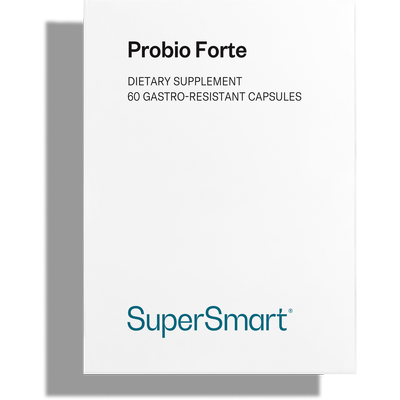13-04-2012
Seasonal allergies: probiotics to the rescue!
 Allergies are increasing worldwide, particularly in industrialised countries. One hypothesis is that they may be partly linked to an imbalance in intestinal flora, and in particular, a decrease in Lactobacillus populations.
Probiotic bacteria are living micro-organisms that, when ingested in sufficient quantities, have a range of beneficial effects on our general health. An improvement in the balance of intestinal microflora helps to combat infectious diarrhoea, relieve inflammatory intestinal diseases and restore integrity to mucosa.
Allergies are increasing worldwide, particularly in industrialised countries. One hypothesis is that they may be partly linked to an imbalance in intestinal flora, and in particular, a decrease in Lactobacillus populations.
Probiotic bacteria are living micro-organisms that, when ingested in sufficient quantities, have a range of beneficial effects on our general health. An improvement in the balance of intestinal microflora helps to combat infectious diarrhoea, relieve inflammatory intestinal diseases and restore integrity to mucosa.
Some probiotic strains are recognised for their immuno-modulatory properties - studies have shown them to be highly effective at reducing the debilitating symptoms of seasonal allergies: irritable, watery eyes; constant sneezing; clear, profuse nasal discharge; itchy throat and roof of mouth, etc. Over a four-week period, 62 volunteers suffering from birch-pollen allergies were divided into several groups to determine which probiotic strains were effective at reducing a number of specific immune markers related to allergy (Immunoglobulin E (IgE) and Interleukins IL-5 and IL-13) and thus likely to reduce symptom severity.
Results showed that ingestion of two particular strains of lactobacillus: Lactobacillus plantarum and Lactobacillus casei over 4 consecutive weeks significantly helped reduce levels of IgE and thus release of the histamine responsible for allergy symptoms.
Therefore, in order to reduce the impact of seasonal pollen allergies, it is essential to regularly repopulate the gut flora with a variety of complementary lactic bacteria, including the Lactobacillus plantarum and casei strains. These probiotic therapies should be followed at least once every season, or after any course of treatment with antibiotics or medication, taken preferably on an empty stomach either first thing in the morning or at bedtime.
One month before the pollen season – whether it is tree, shrub or the more common grass pollen – it is advisable to supplement daily with several billion probiotic bacteria, combined with other recognised allergy-beneficial nutritional substances such as L-ascorbic acid and in particular quercetin, in its dihydroquercetin or iso-quercitrin form, to reduce the impact of seasonal allergies.
Snel J, Vissers YM, Smit BA, et al. Strain-specific immunomodulatory effects of Lactobacillus plantarum strains on birch-pollen-allergic subjects out of season. Clin Exp Allergy. 2011 Feb;41(2):232-42.
Order the nutrient mentioned in this article

Probiotic mix; 8 billion microorganisms per capsule. In gastro-resistant capsules for optimum efficacy
www.supersmart.comFurther reading
19-09-2016
The results of clinical research published over the last fifteen years highlight the many beneficial effects of probiotics. They appear to have both preventive and...
Read more14-03-2017
Allergies affect between 30% and 40% of the world’s population. They have multiple causes and take various forms such as food allergies, allergic rhinitis, asthma,...
Read more20-02-2017
Recent research could improve our understanding of the origins of Crohn’s disease, a rare and highly complex condition characterised by chronic inflammation of the intestines....
Read more© 1997-2026 Fondation pour le Libre Choix
All rights reserved
All rights reserved
Free
Thank you for visiting our site. Before you go
REGISTER WITHClub SuperSmart
And take advantage
of exclusive benefits:
of exclusive benefits:
- Free: our weekly science-based newsletter "Nutranews"
- Special offers for club members only

















